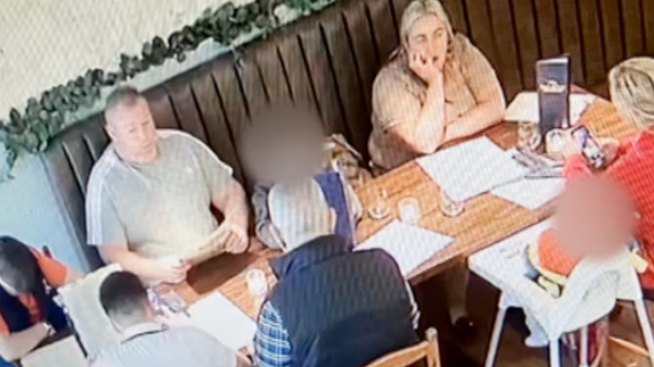'Staff were physically sick': The dine and dash mental health toll on restaurant workers
Amanda Brighton said her venue was recently targeted by a group who failed to pay and claimed they had found a shard of glass in the food
- Published
Restaurant bosses have spoken out about the financial and mental health impact caused by dine and dash thieves, in a sector still affected by the pandemic and rising food prices.
Some have told the BBC they have experienced customers running off without paying or putting glass in food to avoid paying the full bill.
The trade body UKHospitality said a third of its surveyed members had experienced customers refusing to pay for their food.
The National Police Chiefs' Council said theft could have a significant impact on individuals, businesses and communities.
Amanda Brighton, director of Joe's Bar and Grill in Oxford, said her venue was recently targeted by a group who failed to pay.
"We had a group of people come in, they ordered a lot of food at once and a lot of expensive drinks and their bill was £230," she said.
She said running up a large bill was only the first part of the scam. The group then said they had found a piece of glass in their food.
"They usually place the foreign object in the food at the end," she said.
"They try to leave completely without paying anything."
When the diners were challenged the situation became heated.
"The young lady that was talking to me was in my face, screaming at me and calling me names," she said.
Ms Brighton said in the past they had posted photos of diners on social media to name and shame them.
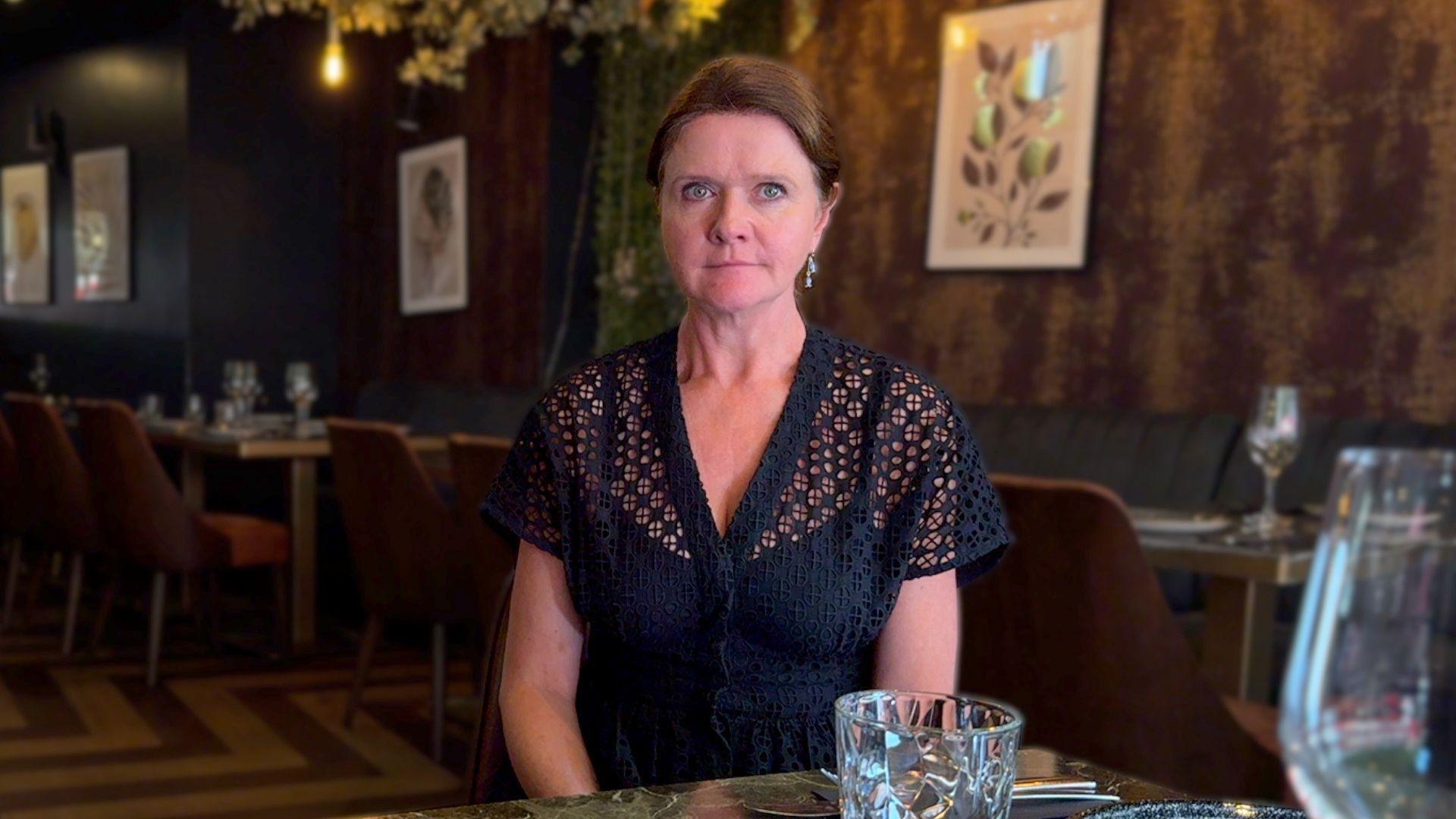
Kate Nicholls from UKHospitality says the cost of living is hitting businesses
The dine and dash phenomenon can take many forms according to Kate Nicholls, the chair of UKHospitality.
"It can be a customer walking out without paying, it can be fraudulent payments, or it can be somebody running up a massive bill and putting down a fake card, or going out and leaving the venue with an unpaid bill," she said.
In their latest survey of members, many reported an increase in cases over recent years.
"It's a growing problem and it needs to be tackled," she said.
"It's theft plain and simple. It's the same as taking and stealing from the venue itself."
Richard Atkinson, President of the Law Society, said the usual offence charged in these cases was making off without payment.
"The offence itself is committed if a person knows that payment on the spot for any goods is required, and dishonestly makes off without having paid as required, with an intent to avoid payment," he said.
"It's an offence that carries a maximum of two years in prison."
In proven cases where people put objects in the food, Mr Atkinson said it became another type of offence.
"If people are seeking to claim what was served to them was something different, then that would amount to a fraud, because they're making a representation dishonestly to make a financial gain," he said.

Restaurant manager Marian Pandos was hit by a customer a few years ago
Marian Pandos, the manager of Posillipo restaurant in Canterbury, Kent, said he had to be more vigilant when customers were eating outside after a brazen dine and dash.
He said one customer "ate his lunch outside, he had a few cocktails and then he ran away".
Mr Pandos said one diner even assaulted him, leaving him with a "small injury".
"He had a late lunch, a couple of drinks and walked away," he added.
"I was running after him and he was very aggressive and he started to fight.
"He hit me and we had to call the police."
Amadeo Grosso, manager of Posillipo in Faversham, Kent, said he believed the problem was getting worse.
"I've been the manager since 2010, I have seen the cases increase year by year," he said.
He said the restaurant had installed high definition cameras "to boost security".
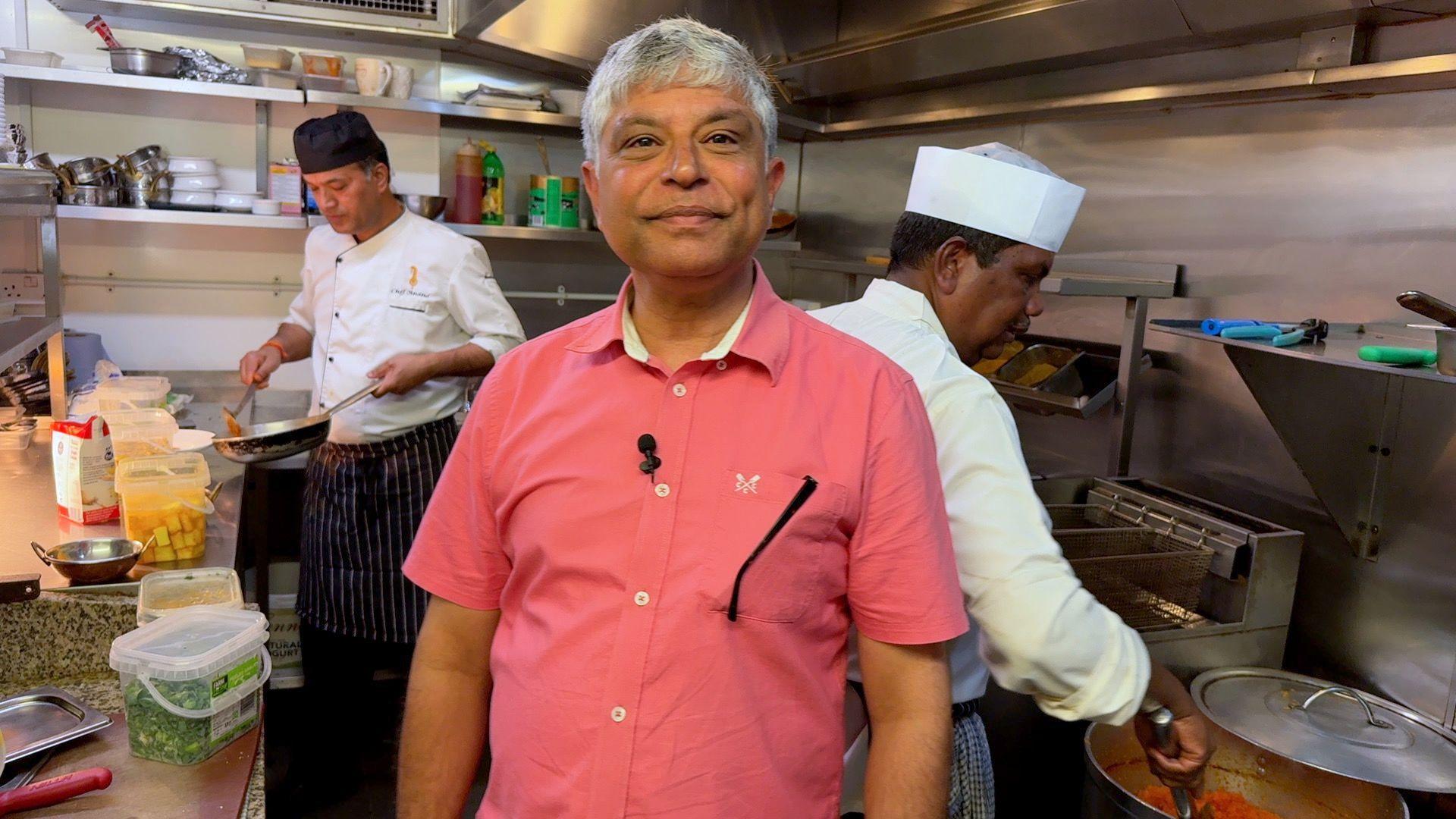
Sanjay Jha has been running a restaurant in West Sussex for 10 years
Sanjay Jha, the owner of Thyme and Chillies in Birdham, West Sussex, described a recent case that he said seemed pre-meditated, when customers only paid £60 towards a £150 bill.
"We suddenly realised people were complaining for no rhyme or reason, as if it was pre-planned that they are not going to pay for their meal," he said.
"The restaurant is full up, everyone seems to be happy, but this particular group says no, this was not right, that was not right, as if they don't want to pay, so the intent was not right."
Mr Jha has been running the restaurant for 10 years and said this was the fifth or sixth incident.
"It definitely has a mental impact on the waiter and the manager who handles all of that," he said.
'Physically sick and upset'
A former restaurateur, who said he had been hit by several dine and dash cases in West Sussex, said it was affecting the mental health of staff in the industry.
Neil Kimber, who used to run a restaurant in Selsey, said it was having a real toll on workers.
"We had a lot of issues with staff being totally physically sick and upset following these incidents," he said.
"We had a very large dine and dash of over £400, and the particular member of staff was questioning himself why he let that money go."
"It's not just the money but the effect it had on him."
He told the BBC that some restaurants had adopted new measures to protect their business, such as taking credit cards upfront and not accepting walk-in parties of over four people.
Mr Kimber said the issue, which he believed was going to become a "prolific problem", was particularly tough to deal with after the pandemic and with rising food and fuel costs.
"What with Covid hitting, VAT on food stuffs, the cost of food rising, we've got to address the situation of dine and dashes," he said.
'It's theft and it's causing us mental stress'
UKHospitality's Ms Nicholls told the BBC the crime is having an impact on businesses that are still affected by the cost of living crisis.
A new survey this week suggests food price inflation has risen for the sixth consecutive month.
"We have seen repeat offenders coming through, so these are criminals," she said.
"It's under-reported, businesses don't tend to take small scale thefts to the police because of resourcing issues."
A National Police Chiefs' Council spokesperson said: "Dine and dash type offences are largely opportunistic in nature and we would encourage all business owners and staff to make sure that when they do happen, they are reported so their local force can take action.
"While policing will always follow all possible lines of enquiry to identify and pursue offenders, and tools like CCTV can greatly assist with this."
The Great British Takeoff
Follow BBC Kent on Facebook, external, on X, external, and on Instagram, external. Send your story ideas to southeasttoday@bbc.co.uk, external or WhatsApp us on 08081 002250.
Get in touch
Have you been affected by issues covered in this story?
Related topics
- Published15 October 2024
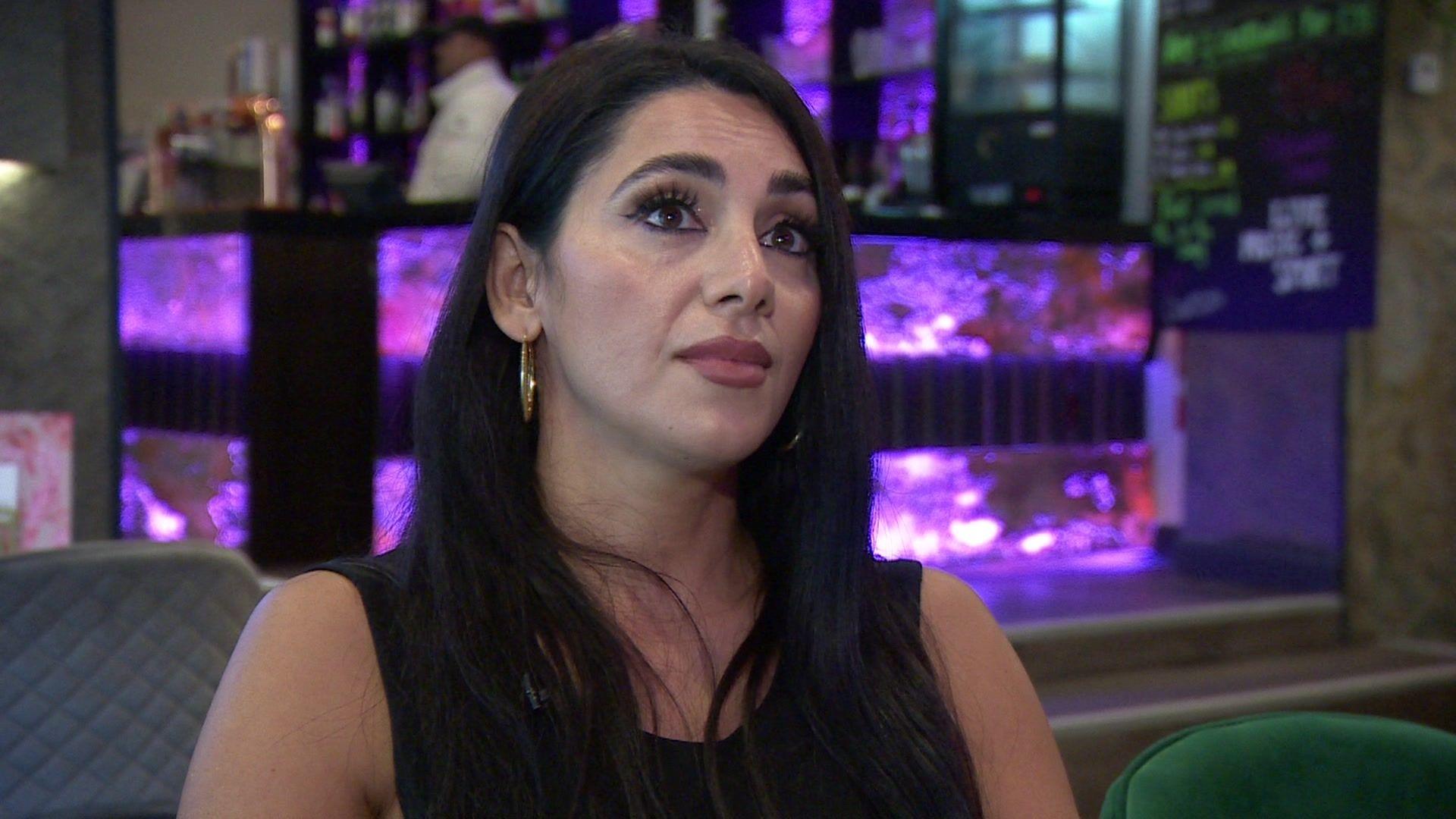
- Published14 May
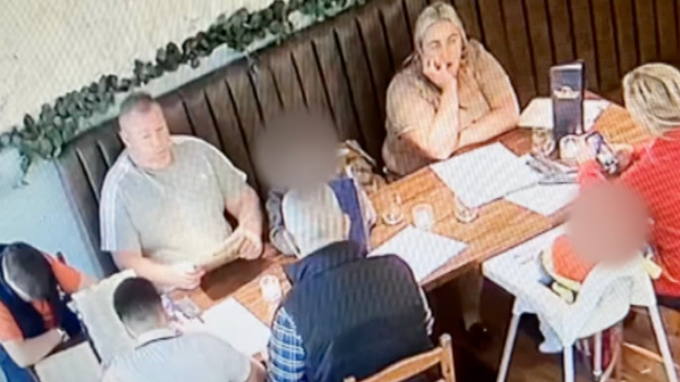
- Published29 May 2024
